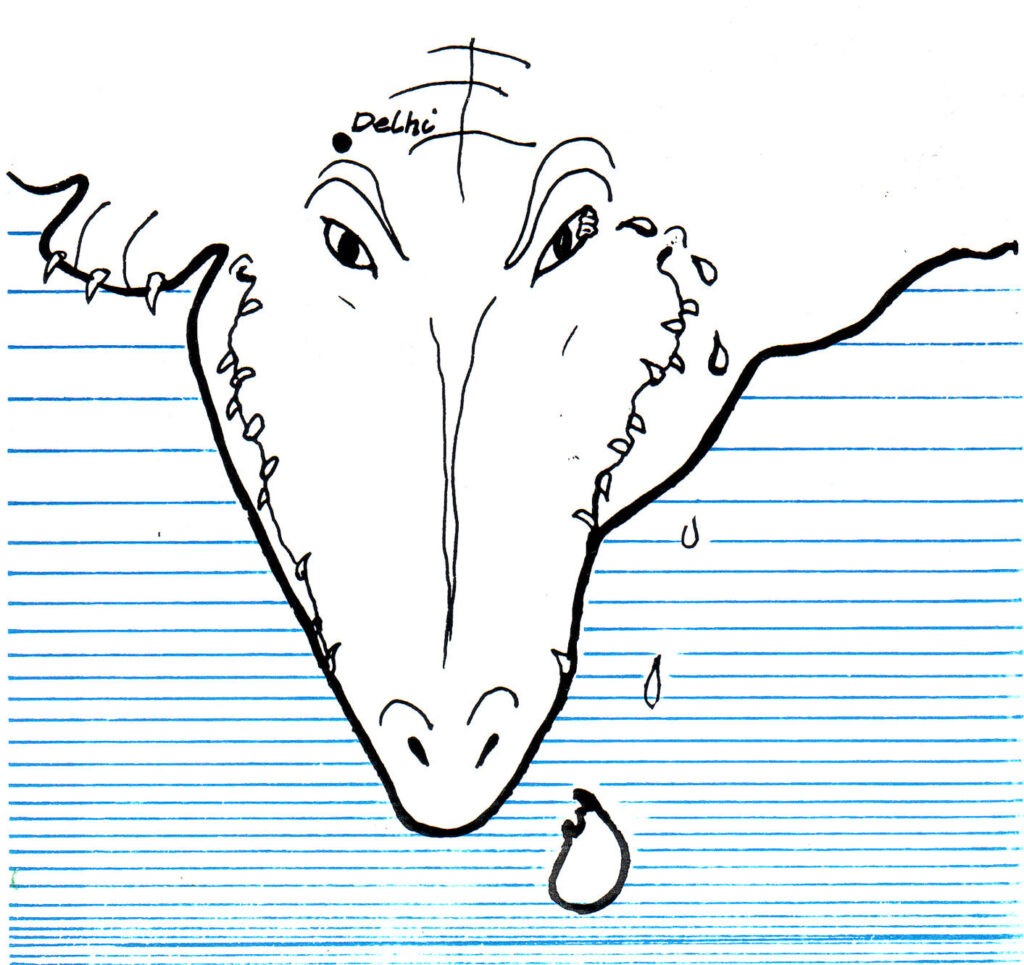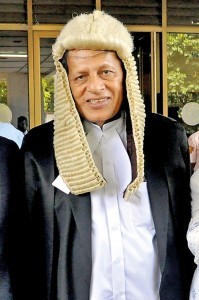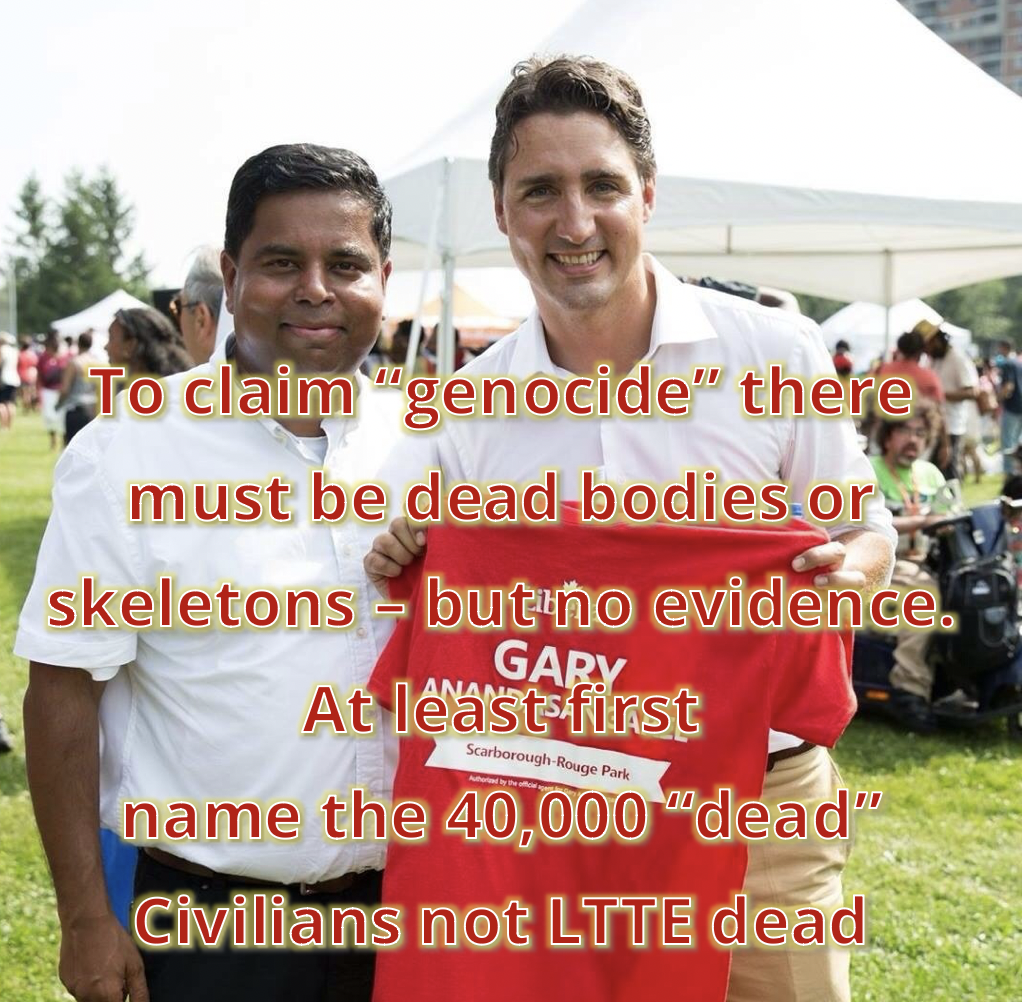Chanaka Bandarage
Courtesy: Vanguard Post
News emanating from Sri Lanka shows that there is the tendency to give land and Police powers to the Provincial Governments including the Northern and Eastern provincial governments. The Sri Lankan Government is under enormous pressure from the TNA (Tamil National Alliance) and other Tamil MPs; it is quite probable that the ultimate political package can contain giving these two and other powers to the Provinces.
The Government is also under pressure to reduce the troop numbers in the North and the East, if this is recklessly carried out, it will be a major threat to the country’s sovereignty and territorial integrity. Already, the Army has handed vast amounts of its land to Tamil civilians and the Northern Provincial Council. In the former Jaffna HSZ, the Army does not hold any land now.
The TNA wants the Army to be confined to 2 or 3 camps in the North. Will the Government succumb to this? This largely depends on how the three namesake Sinhala political parties in the Parliament – SJB, SLFP and JVP behave.
During the Yahapalana regime (2015 – 2019), Mr Maithripala Sirisena, the then President boasted that he handed most of the land held by the Army to Tamils (about 90% of the questionable lands). How can an Army conduct operations only by owning buildings sans land? But, this is what has happened. The Army had to relinquish large farm lands that it once occupied.
Why giving land and Police powers to the Provinces (especially to the North and East) is too dangerous?
This means they will have the sole power to legislate in relation to land and Police. Then, basically the provincial Governments can sell, transfer, lease, mortgage, donate, and acquire land anyway they like within the province. Included in the land deal, it is possible that the central Government may relinquish crown lands and lose the sea shores. The Northern and Eastern Provinces hold about ¾ of Sri Lanka’s coastal area.
This is exactly what the LTTE – the world’s most dangerous terrorist outfit had fought for. Now the TNA has taken over their ideological mantle (when the LTTE was alive, they were their political proxy). The TNA now states that they will not talk to the Government unless land and Police powers are part of the forthcoming political package.
It should be noted that Sri Lanka is very small and it is currently jam-packed with an ever-growing population. There is hardly any space left in the South for human expansion. The only areas available for future human habitation/expansion are in the Northern (above from Vavuniya), and Eastern provinces. Once the central government loses the entire control of these areas, there is absolutely no way that people from other provinces can live in these areas. This will be a grossly unfair situation to rest of the population. The Constitution articulates the freedom of movement for people (Article 12).
Once these two powers are given, the Northern provincial Government can effectively (legally) block the Southerners from not only buying land but also visiting the area.
If the two provincial governments want (they will be hostile to Sri Lanka anyway), they can give land to their counterparts in India, bypassing the central Government. It will be easy for such enemies of Sri Lanka like Vaiiko, Nedumaran, Seemen et al to set up even para military style camps in Sri Lanka on the invitation of the Chief Ministers of the two provinces. After vesting Police powers with the Northern and Eastern provincial governments, boatloads of illegal immigrants can freely sail from India to Sri Lanka. Some can come in the guise of fishermen (this happens even now).
The illegal migration of Tamils into Sri Lanka is not an old phenomenon, it happened extensively in the 20th century until the Sirima – Shastri pact was signed in 1964. This activity can flourish under the new powers to be given to the Northern and Eastern provincial governments.
The Police positions – IGP (Inspector General of Police) downwards in the provinces will be appointed by the Chief Ministers of the provincial governments. With time, these two Police forces will exclusively have Tamil speaking people serving them, with a Tamil speaking Muslim component in the Eastern Police force (it seems with the TNA, the Muslims are also demanding the two powers).
The two Chief Ministers will have the power to disallow the Sinhalese from joining their Police forces. We have seen how Mr Vigneswaran, the former Northern Province Chief Minister had vigorously tried to block the Sinhalese from settling down in the North.
Once these two powers are granted, it is possible for the two provinces to re-merge and then make a claim to secede from Sri Lanka (it is 1/3 of the total land mass). They may then have the key ingredients for claiming a separate nation of their own. The Yahapalanaya Government in 2019 gave an international airport to the North.
The international law is so developed now, we live in an era where new nations are constantly being created. Kosovo is a creation entirely by the international world – it was created despite severe opposition by its former ‘owner’ Serbia. Serbia had the support of Russia and China, but, still failed to hold on to Kosovo. Other recent examples of the creation of new countries are –South Sudan, East Timor and Eritrea.
South Ossetia, Abkhazia and Ingushetia are new nations recognised only by Russia.
A number of other new nations (12) were formed after the collapse of the former Soviet Union.
Under enormous pressure from India, in 1987, Mr JR Jayewardene, the then President, introduced the provisional government system in Sri Lanka. This has caused untold problems in Sri Lanka, and they are continuing. The system has made Sri Lanka poorer.
Previously the people had to put up with corruption by the central government only. After 1987, corruption expanded like a cancer to the provincial levels. The country’s bureaucracy increased tremendously, it cannot sustain such an array of legislatures and bureaucrats, most of who were unsuitable for their jobs and have caused many problems to the country.
Prior to 1978, Sri Lanka was served under the ‘Saulbury Constitution’ which was slightly amended by the Sirima Bandaranaike Government in 1972. Under the old Constitution (until 1978), Sri Lanka had a strong centralised government, which served the country remarkably well. Parliamentary democracy flourished where Independent MPs were elected to the parliament defeating candidates from the two dominant parties (this can never happen under the current electoral system). There is now a ‘Manapa’ system that favours political candidates who have deep pockets.
Those days the country had by-elections when an MP resigned or died. This was democracy at real work. This system was scrapped by Mr JR Jayewardene.
Sri Lanka is simply too small and too poor to be governed by provincial governments (9), with a central government in the Centre; then also an Executive President.
Sabaragamuwa, Uva, Vayamba etc have less than a million voter base. For them to have separate Courts, a Chief Justice, an IGP, an Attorney General of their own! Is Sri Lanka going mad?
We must not forget that the country’s armed forces made supreme sacrifices to preserve the sovereignty and territorial integrity. If land and Police powers are given to the two provinces now, the supreme sacrifices that the armed forces made will be in venin.
It is important to understand that there is no ethnic problem in Sri Lanka. Only there was a terrorism problem which was resolved in 2009. Now the country’s two main communities are living in harmony like loving siblings of one family. This should be encouraged. Giving land and Police powers will not build unity between the two peoples, but division. Like what they are doing now, the Government must try to uplift the standard of living of all the people including those in the Northern and Eastern provinces.
During Mrs Bandaranaike’s regime of 1970 to 1977, the Northern farmers were greatly benefitted. That is why they voted for Mr Hector Kobbekaduwa in large numbers at the Presidential election in 1982. They wanted to show gratitude to his good work as the Minister of Agriculture where he tirelessly helped to increase the country’s food production.
True, the Government is under enormous pressure from the TNA and other Tamil political parties to create a Federal system – giving these two powers as well as other powers such as the right to legislate – create own laws, conduct criminal prosecutions, run schools, hospitals, build highways, fully control the public transport etc.
The Central Government with its 225 parliament MPs will be left with very little real power – Defence, Foreign Affairs and Immigration.
Just to satisfy the North and the East, do we need to create 9 ‘new countries’ within Sri Lanka?
Let us hope that the country’s leaders will have the courage not to succumb to these unfair demands. The Opposition parties (SJB, SLFP and JVP) must endeavour to uphold the nation’s unitary status. Unfortunately, these two parties also seem in favour of granting the land and Police powers.
This is because of their sheer political expediency. All the so called Sinhala political parties think that they could win the North/East minority vote; but that will never happen. Those people will always vote for their own Tamil and Muslim political parties.
Albeit a few patriotic Sinhalese, there is hardly any opposition in the country against the proposal to give land and Police powers. Majority of the Sinhalese do not care. They only think about their day to day life. The politicians know this well. Taking the advantage of this weakness in 1987 Mr JR Jayewardene went ahead to introduce the 13th Amendment that is extremely detrimental to Sri Lanka.
Sri Lanka is looking after its Tamil minority well (this is a fact). When Tamil political leaders are asked to highlight any specific problem that the current Tamils face that the Sinhalese do not face, they go unanswered.
Disadvantaged Sinhalese face a multitude of problems of their own. No one wants to hear them and fix those problems.
For eg, all Sri Lankan and Indian Governments help the Upcountry Tamils immensely. This is good. But, what about the plight of the Upcountry Sinhalese? They also like to work in the tea plantations, but they are denied of this right. There are ‘Lahirus’ and ‘Damayanthis’ that live in Sinhala villages surrounding the tea plantations, they struggle to feed their families with at least 2 meals a day. We must not forget that the British built the tea plantations forcibly acquiring the lands belonging to the forefathers of Lahirus and Damayanthis. The British imported Tamil labour from South India to work in the tea (and rubber) estates. But, the Upcountry Tamil Trade Unions today oppose the Sinhalese from working in the tea plantations. Is this fair? Is this not a denial of a fundamental right to many thousands of Lahirus and Damayanthis who live in the Upcountry?
A main discrimination that the Sinhalese face is their inability to live in the North and the East, which is 1/3 of Sri Lanka. TNA and Tamil political parties block them from settling down in those areas.
It is easy for a Tamil to leave Kilinochchi and settle down in Tangalle. A Muslim can easily leave Akkaraipattu and settle down in Gampaha. But, for a Sinhalese living in Tangalle or Gampaha to settle down in Kilinochchi or Akkareipattu? This can never happen in contemporary Sri Lanka.
In relation to the 13th Amendment, it is currently well functioning. When Mr Vigneswaran was the Chief Minister, he meddled with the province’s land willy nilly. He behaved as if he held the land power. The Central Governments tolerated him too much. He was a former Supreme Court Judge; that may have been a reason. Also, he is a fierce orator.
It is impractical to create a Federal system in Sri Lanka. Sri Lanka is not India. A Federal system can work in India – a country of 1.4 Billion people; Sri Lanka has only 22 Million people. From time immemorial, Sri Lanka has been a one nation.
It is true that land powers were included in the Concurrent list of the of the 13th Amendment (Schedule 9), enacted as a result of the India – Sri Lanka pact, 1987, but the fact of the matter is that they were suppressed from the very beginning. India agreed to this. There is no need to lift that supersession now.
What the TNA is asking is that Sri Lanka should enforce the 13th Amendment to the letter. The country has not dismantled the provisional government system despite the fact that it is extremely costly and unworkable. It is definitely a White Elephant.
What the Government must tell the TNA and other Tamil MPs is that since Sri Lanka is looking after its Tamil minority very well, the Tamils are happy and are economically fast progressing; there is no necessity to create a federal system here. It is impractical, costly and useless.
The Government is wrong to convene an ‘All Party Conference’ now to give full 13 or even 13+. The country is hemorrhaging as a result of the worst economic crisis it is facing since gaining independence 75 years ago. This is not the time to embark on huge political, administrative and structural changes for the country. Rather than exacerbating the ethnic problem, all Tamil political parties must work with the Government in fixing Sri Lanka’s economic woes.
In relation to the war crimes allegations made against Sri Lanka, Sri Lanka now correctly states that it will investigate each and every credible allegation of war crimes as put to them and will prosecute those who have allegedly offended. It is up to those who made the allegations to provide particulars of the alleged atrocities. Sri Lanka cannot conduct an investigation based on dubious ‘expert’ and press reports and fabricated TV documentaries. Proper Complaints must be first lodged with by parties with the Sri Lankan Police and/or other relevant Sri Lankan Government institutions. This has not happened.
Overall, Sri Lanka is an independent sovereign nation; other nations have no right to interfere into her affairs, unless very serious human rights violations have taken place there. Then, the Government must investigate. The serious allegations waged by the UK’s Channel 4 contain many fabrications. This writer has provided comprehensive analysis about them.
It is not to be forgotten that very serious human rights violations have taken place and still takes place in the rich West. They do not want others’ to investigate their affairs, but, they continue to pick on tiny Sri Lanka. Sri Lanka has become a political football of some of the powerful.
This writer is a Sri Lankan national of Sinhalese decent He is a freelance International Lawyer. He was the Principal Barrister of City First Solicitors, Canberra and Sydney. He is the President of Sri Lanka Support Group (Worldwide).





